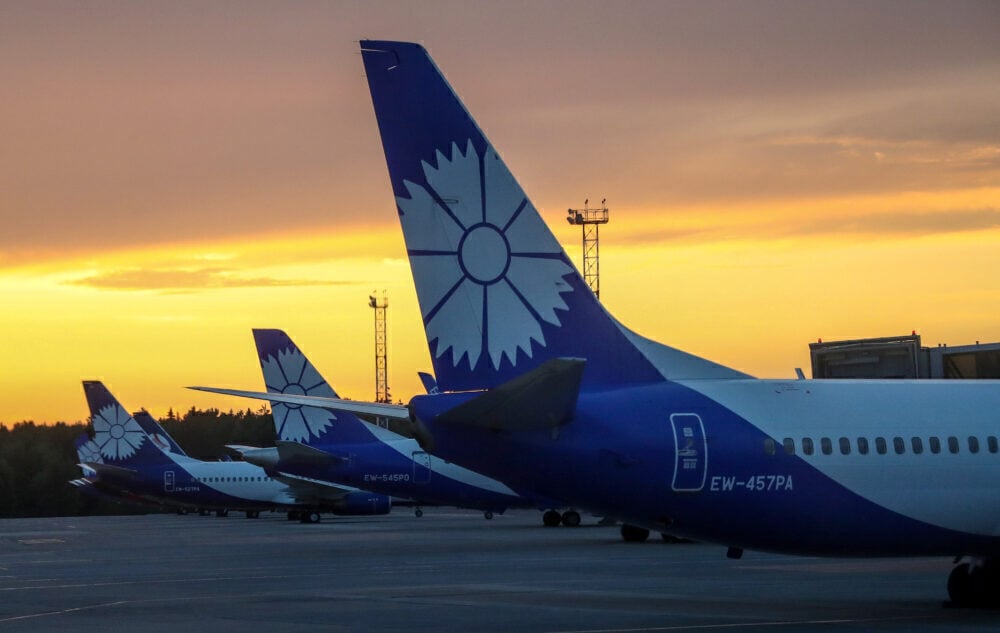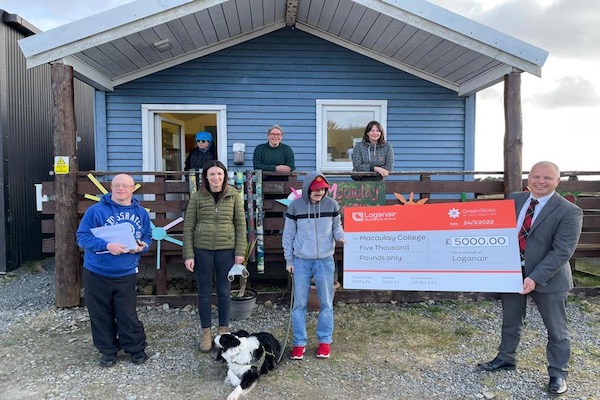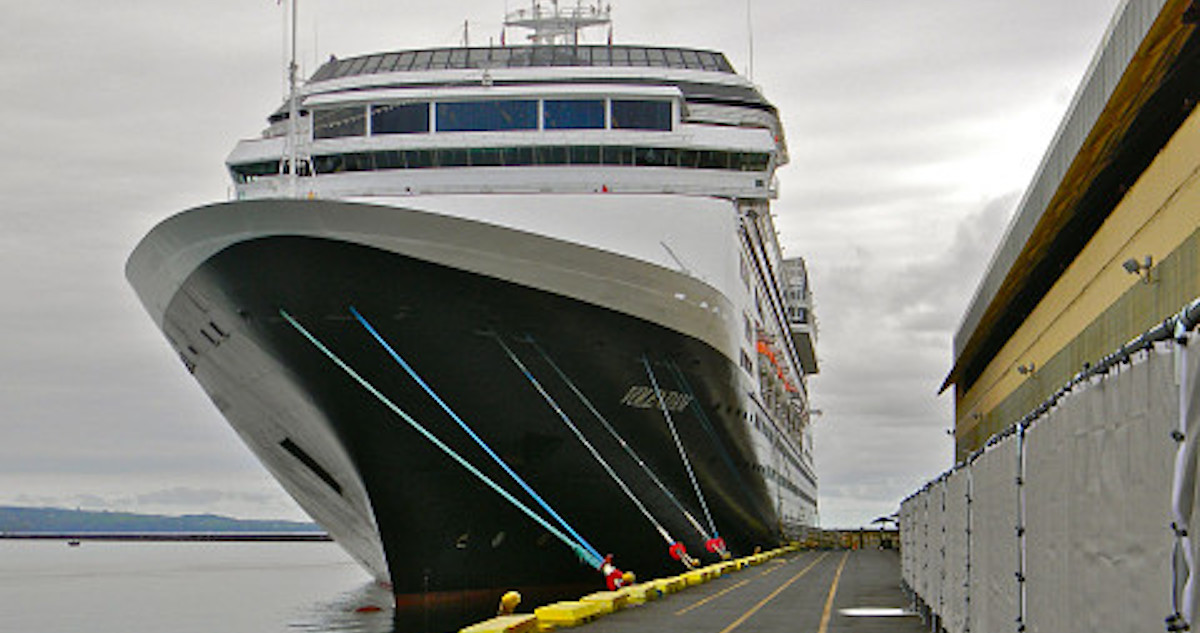CWT's Vournakis Sees 'Congruence' in Working with Spotnana
CWT in recent weeks announced a "strategic partnership" with travel technology supplier Spotnana to make its tech stack available to the travel management company's customers. CWT chief customer officer Nick Vournakis spoke with BTN's Michael B. Baker during the...
/Management/Nick_Vournakis.jpg?tr=w-1200%2Cfo-auto)
CWT's Vournakis discusses:
Plans for CWT's Spotnana partnershipTravel buyers' leverage in a lower volume environmentCautious customer interest in new pricing modelsCWT in recent weeks announced a "strategic partnership" with travel technology supplier Spotnana to make its tech stack available to the travel management company's customers. CWT chief customer officer Nick Vournakis spoke with BTN executive editor Michael B. Baker during the recent Business Travel Show in London about CWT's strategy in driving that partnership as well as where the travel recovery stands and CWT's progress in pushing a new pricing model. Edited excerpts follow.
BTN: What are your plans for the recently announced Spotnana partnership?
Nick Vournakis: There is a lot of industry curiosity around what exactly does this mean. We were very bullish here, and we're very excited about what I would call a lean-forward profile with new and emerging technology. It brings the experience to a whole other level. It's not just an [online booking tool]. It's a platform, and we believe this congruence with travel counselor technology does nothing but build to that advanced travel experience.
One of the values CWT lives by is this idea of working with an open ecosystem. That means we need to have partners who also embrace this idea of an open ecosystem. What does it meant to plug and play new and emerging technologies into the solution? For us, this is another opportunity to plug in a bit of a different platform player, but one that opens the same notion of working in an open ecosystem. Customers need and want choice. A one-size-fits-all solution isn't going to work for anybody. It's too diverse of an industry, especially in the enterprise space. You have customers who don't always want a single platform across a global program.
We're excited about the potential here, and we know Spotnana is excited about the potential, because we both solve different parts of this equation in ways we know we can both benefit from. We have a global footprint. We have travel counselors set all around the world. They won't have to invest in building the same kind of infrastructure. They're very forward-thinking in regard with what they built for [New Distribution Capability], and this gives us another tool in our toolkit to help make that available to customers at scale. We both excel in different areas and swim lanes, and the idea that we can do something special together is important.
The natural response from our customers and prospects is, what does that mean for me? There are some where the day-one readiness is high, or it could be low depending on how they are configured, their risk tolerance, etc. We also know there's work to be done to make sure that when we're ready on day one, there's no loss of fidelity in terms of what they had yesterday versus what they have tomorrow. There's still some work for us to be done in understanding what does all the connectivity look like, and we'll get to the point where we start bringing customers on board. We'll scale that solution and learn along the way. There's a lot of optimism that this is going to be really good for the industry.
BTN: What training will it entail?
Vournakis: For us, that impacts day-one readiness. We will need to get our agent base trained on a new set of counselor technology The good news is: It's great technology. It should be easy to learn, and ramp time should be quick. It's a necessary part of the process but also one we're absolutely ready to embrace.
BTN: Does that fit into your staffing strategy as the industry continues to recover there?
Vournakis: Every TMC is now faced with this new challenge of getting great at sourcing new talent, not sourcing experienced talent—we've all been good at that for a long time—and training and onboarding and equipping that talent to be fit for purpose and creating highly productive counselors in shorter periods of time. The idea that you have a technical platform that enables that is hyper-critical. That's one of the reasons we're so interested in the potential here. We're fully committed to being great at doing that. We're going to be able to source for the right kind of spirit, get them up and running quickly and on a technology platform that's intuitive and easy to use and generates productivity in a short period of time.
Every TMC is now faced with this new challenge of getting great at sourcing new talent. … The idea that you have a technical platform that enables that is hyper-critical.”
BTN: Where are we in the recovery, and are we to the point where we stop making comparisons to pre-pandemic volumes?
Vournakis: Especially from a customer perspective, I'm just not sure going back to a 2019 benchmark is relevant anymore. For the supply chain, there's a certain relevance to how recovered are we. We're a volume-based business, so you need to understand how much volume is there and what's the right cost structure to support that volume.
When I think about it from the customer's perspective, customers are no longer submitting [requests for proposals] based on 2019 volume. They are recalibrating to whatever their new world is. Quite frankly, all of us are ready to start saying that '23 is our re-baseline year, and we'll just start looking at travel in '24 comparative to what it looked like in '23. We are pretty well entrenched into what is our new normal. It is well short of what 2019 of was. It's over 100 [percent] in some markets. We have so much business with the U.S. government and know there are many weeks they are trading well above where they were in 2019. You have markets like China, where the fluctuations have been up and down and up and down. By and large, things have leveled off across Europe and definitely in the United States, and that magic number is somewhere between the low 70s and maybe the high 70s in some instances.
BTN: With the opening of China, there really is no "switch" left to flip in terms of recovery, correct?
Vournakis: That was the last vestige, especially for international travel. So, no, there's nothing left to open or to recover. We're living in a world now where you have dispersed workforces, and what we are seeing from some customers is this idea that we need to spend less on internal meetings but maybe a little more on collaboration. We might need to collocate people because they are no longer in home office locations for short periods of time. Training we can deliver virtually. The regular cadence of meetings that happen can be virtual. That is the way of the world.
BTN: With volume settling at lower levels, does that dilute the power of the travel buyer?
Vournakis: I don't know if the buyer will ever have less power, but understanding value for volume will necessarily change. The whole playing field changes at once. You will have seen from some of the supply base—let's use American Airlines—they've taken a pretty hard line and dare I say drastic approach to how they want to do business in the corporate travel space. That's a model. You've maybe seen some other airlines say, some of the rich discounts you used to enjoy, there may not be the same value trade-off for us anymore. I don't know if that's a loss of buying power. To some degree, it's a recalibration because no one is traveling at the levels they were in 2019. As long as leisure volume continues to be really strong, specifically in the world of airlines, you are going to see a stringent approach to capacity control, so they enjoy some of the pricing advantages that they have. Leisure demand is still strong in the hotel space as well, and that has this buoyancy factor for pricing overall. Inflation is a real thing.
BTN: What about in the hotel sector?
Vournakis: The difference is in hotel, you have such a decentralized buying process. Even when you're working at a brand level, you still have a tremendous amount of franchisees who are going to do whatever they want at the point of sale. From that perspective, it's some of the same fundamental dynamics, but they're going to make decisions at the property level. I have more demand than I have capacity, therefore I don't need to be as aggressive with price in order to fill the property. We have some customers who are really frustrated, as in, "Why can't you do more to help us?" It's not that we don’t want to help and don’t have the right analytical approach to what this looks like. It comes down to how any individual property fills up its rooms on any given week, month or day. It's tough from the buyer side, because how do you go out there and say, I need to budget for price increases when my job is to make prices go down?
There are so few questions in RFPs these days about how do you, the TMC, help us drive employee engagement, and I think that’s going to be a big change in the future.”
BTN: Will this shift the role of the TMC?
Vournakis: Where the role of the TMC is necessarily changing, it probably has less to do with this dynamic between the supply chain and the buyer but has a lot to do with, I am now necessarily tasked with either providing intelligence or making decisions with data that I didn't need before. So, how is travel going to contribute to our goals around net neutrality? I need reporting. I need to provide information at the point of sale to nudge travelers in a different direction. I need to have a program that very clearly meets goals and objectives around equity and inclusion. How are we recognizing individuals? How do we respect pronouns? There are things we can do from a profile perspective that we have done in terms of our own CWT profile to help smooth that agenda along the way.
The partnership we have with Thrust Carbon is really important, because it's not just lip service around sustainability. That's what I would call near-term changes to what's expected of a TMC. Over the longer haul, there's going to be this intense pressure from the corporates and TMC. "I expect you to help me travel smarter. I need you to help me travel less and be brilliant about it, because that's the only way I'm going to meet a net neutrality goal." That's a weird dichotomy, because our cash register rings based on the amount of trips that are booked, so we have to embrace this notion of, we can help you travel less and smarter, and there's more value we bring to the table than just punching a ticket. That will be this biggest, longer-term dynamic: How do you help us drive employee engagement? There are so few questions in RFPs these days about how do you, the TMC, help us drive employee engagement, and I think that's going to be a big change in the future.
BTN: And how do you do that?
Vournakis: What we'll say is, how do I position my travel program as a value-add to my employee base. We have customers who say that today. I was talking to a chief procurement officer just a couple of weeks ago, and he said, we see travel as a benefit to our customers, to our employees. So, the service has to be amazing. At the same time, we have to figure out how to make this great for them. How do you help us engage the employee in a way that it's about the technology that's provided, the experience that's provided, and I really do think there will be some forward-thinking companies that start to say this is part of the employee experience, so show me how you're going to do that.
BTN: What level of interest are you seeing in your new pricing model?
Vournakis: My sense is the market is ready for some changes, but the market is not going to change en masse overnight. Finding the right customer and the right opportunity for some things a little more progressive, a little more simplified. We're even still in instances where a customer wants to see both models side-by-side. We just spoke to a customer where they feel comfortable with the transaction-fee model because they know it, but they were open to looking at an alternative side-by-side. It's going to take some time for mass adoption. By and large, the model and our approach are not fundamentally changing. We still think there is a reasoned approach for simplified, single-fee volume-based type of pricing models.
BTN: Where are you on your investment timeline following CWT's recapitalization?
Vournakis: The infusion of capital has been integral to how we have developed and rolled out our roadmap. You're not going to see, all of a sudden, poof, all of this stuff appears, but if you look over the course of the last 18 months, there's a very clear, progressive rollout on what we want to do with the platform, with NDC, with reporting and what's new in terms of traveler well-being dashboards. Where we are investing more into messaging and chat functionality, opening up WhatsApp as a channel, which we had not had previously. What you are able to see is a very measured and structured approach to product development, and that's what that capital infusion is there to facilitate. Then, there's a go-forward posture as well. We don't want to lock into a firm, fixed roadmap for 2024, because we need to be clear with what we're going to do in the next six months but more directional after that. Your priorities might change.

 Astrong
Astrong /Management/Nick_Vournakis.jpg)

































